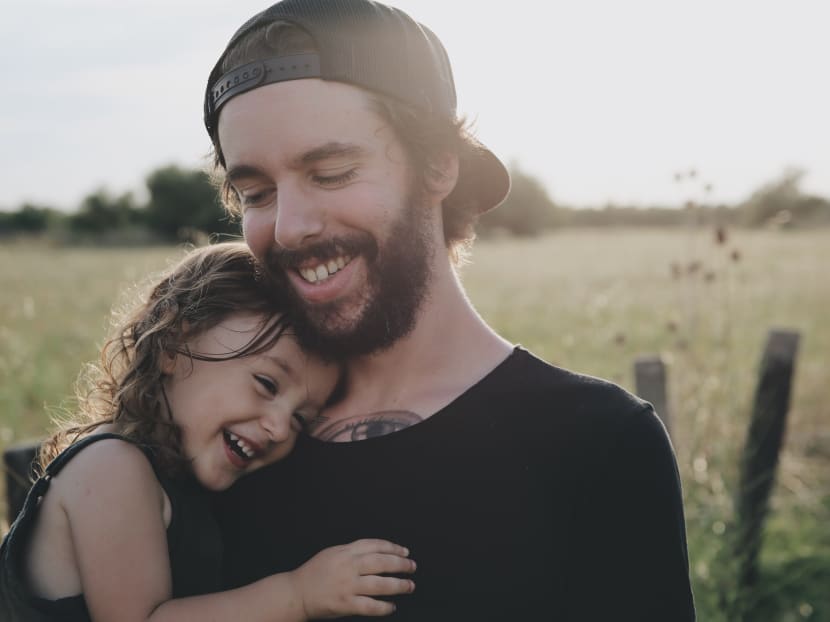Can mindfulness make you a better parent?
SINGAPORE — Lately, the concept of mindfulness has gained traction, in line with an increased belief in the idea that we should be looking after not just out physical, but mental health, too. As with practices such as meditation and yoga, mindfulness reduces stress levels.

Parents can practise mindfulness by being ‘present’ in the moment with their children, not mentally or emotionally absorbed or distracted elsewhere, say experts. Photo: Caroline Hernandez on Unsplash
SINGAPORE — Lately, the concept of mindfulness has gained traction, in line with an increased belief in the idea that we should be looking after not just out physical, but mental health, too. As with practices such as meditation and yoga, mindfulness reduces stress levels.
But can this concept be applied to the chaotic and often demanding world that is parenting?
“Mindfulness is the ability to be fully present in the here and now: Observing thoughts, emotions and sensations without judgement,” explained Silvia Wetherell, a counsellor at The Choolani Clinic at Mount Elizabeth Novena Medical Centre.
“Mindful practice helps the person be more grounded in the here and now, rather than thinking about never-ending to-do lists or ruminating on what has happened before.”
Dr Natalie Games, a psychologist at Alliance Professional Counselling, said research shows mindfulness practice decreases stress and increases empathy. So parenting in a mindful way can help parents to be more compassionate and better able to communicate and, therefore, reduce conflict.
Parents can also practice mindfulness with their children. “They are ‘present’ in the moment with their children, not mentally or emotionally absorbed or distracted elsewhere,” Dr Games elaborated.
“The best predictor of children’s stress levels is the stress levels of the key adults in their lives,” she added. “As a psychologist, I’ve seen many anxious children who don’t have anxious parents but I can confidently say that I haven’t seen any anxious parents whose children aren’t anxious.”
Practicing mindfulness is helpful at every stage of parenting. Wetherell believes it is especially beneficial during pregnancy and the first few months post-partum, when a woman is adjusting to her new role as a mother. But dads can get in on the action, too.
“Both mothers and fathers can struggle with intense feelings of frustration, anger and rage,” Wetherell said. “This can feel like quite a frightening experience for both the adult and specially for the child, when that anger is acted upon — through yelling or smacking, for example.
“When a parent is calm and centred, it makes the hard work of parenting not only easier but more enjoyable too,” she added. “When we talk about the importance of quality time with children, we mean a mindful way of being really present and engaged with them, rather than distracted with the phone or with mindless chatter in the mind.”
One parent who practices this concept is Zerlina Sim, a life and mindfulness coach and founder of blog Honeyjoys Soulful Parenting (www.honeyjoys.org).
“A daily mindfulness practice helps me compartmentalise and transition between work and home,” she shared. “My confidence and patience as a parent has grown. I make better decisions around what is best for each of my three children. I feel more empowered to choose responses to situations, instead of getting overwhelmed or thoughtlessly going through the motions.”
Her children have noticed the difference. They say she is calmer, approachable and laughs more. “I definitely have fewer moments of regret or guilt from outbursts of anger and frustration. I am a happier, more positive parent,” she said.
WHEN IN TRICKY SITUATIONS
Mindfulness isn’t just an overall concept, it can also be used in common parenting predicaments. For example, if your child’s grades have slipped or if he got into trouble at school, instead of admonishing him, use the mindful approach.
Wetherell suggested taking a few slow breaths before asking your child more about his or her challenges at school. “If you’re calm and grounded, you can hear your child’s side of the story and instead of a ‘tunnel vision’ stressed-reactive response, you’ll be in a better position to respond in a helpful way.”
It’s not just parents who benefit from practicing mindfulness, children reap the rewards too. Dr Games explained that the parent-child relationship is improved. Thanks to lower parental stress and reactivity to stress, conflict in the home is reduced.
Parents are also better able to tolerate difficult emotions of themselves and their child. Also, as mindfulness helps us to take better care of ourselves, accepting our strengths and challenges, we learn to accept our children more fully.
While being a parent is also an open invitation for others to comment on how you’re parenting ‘wrongly’; mindfulness can help you better deal with such annoyances. “(It) teaches us to see these as opportunities for compassion, humour, honesty, vulnerability, kindness and repair,” said Dr Games.
“Use a mindful and compassionate approach to help you not personalise the comments or react in an unhelpful way,” added Wetherell.
Even social media can be a source of unnecessary stress in every parents’ lives — especially when you see how everyone else seems to be an ace parent. Mindful parenting can help in seeing the value of real moments, as opposed to those orchestrated especially for social media.
“Mindful parenting helps us to reflect that the act of recording happiness is less important than experiencing it and that as parents, to practice being in the moment at home and in our leisure time, with and without our children, brings about the most positive feelings,” said Dr Games.
Wetherell has a more brutal, yet sensible, approach to social media: Delete it from your phone for better mental health. You can always log in on your laptop if you need to.
“I promise it will make you feel better and more mindful every day,” she said.
“Social media thrives on the mindless addictive quality that gets people scrolling through for hours on end. Set some healthy boundaries and reap the benefits.”





